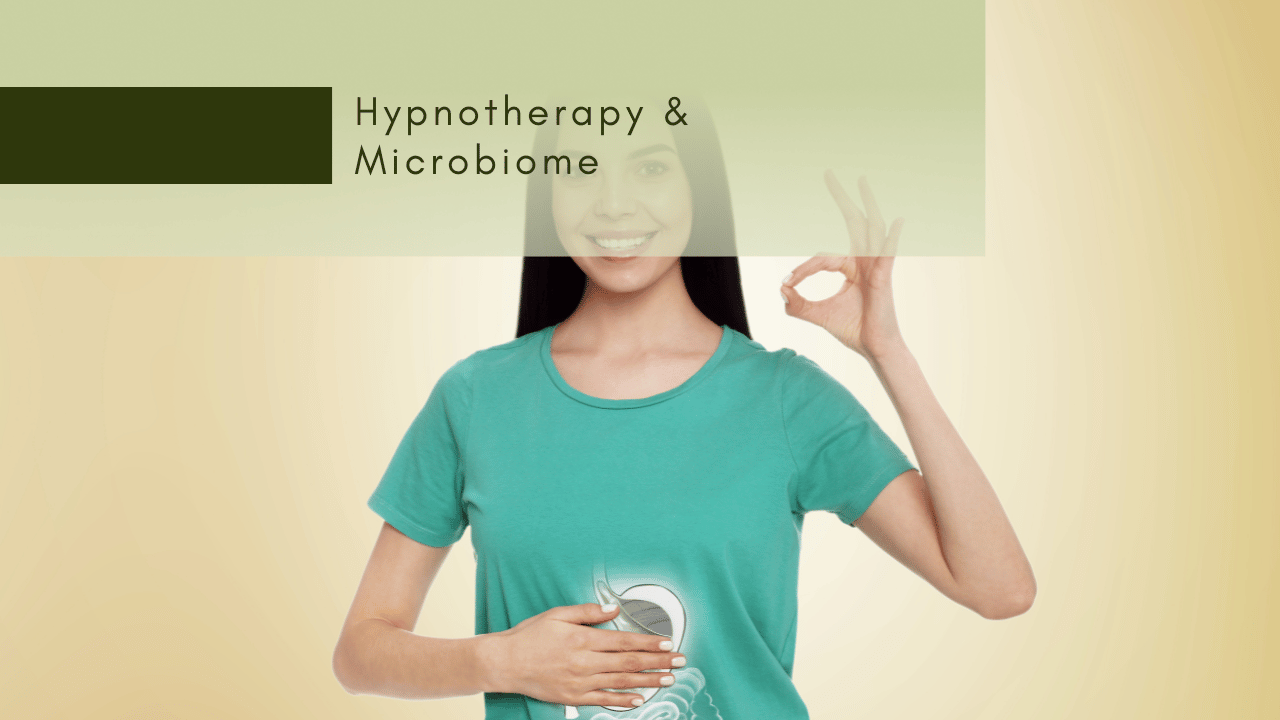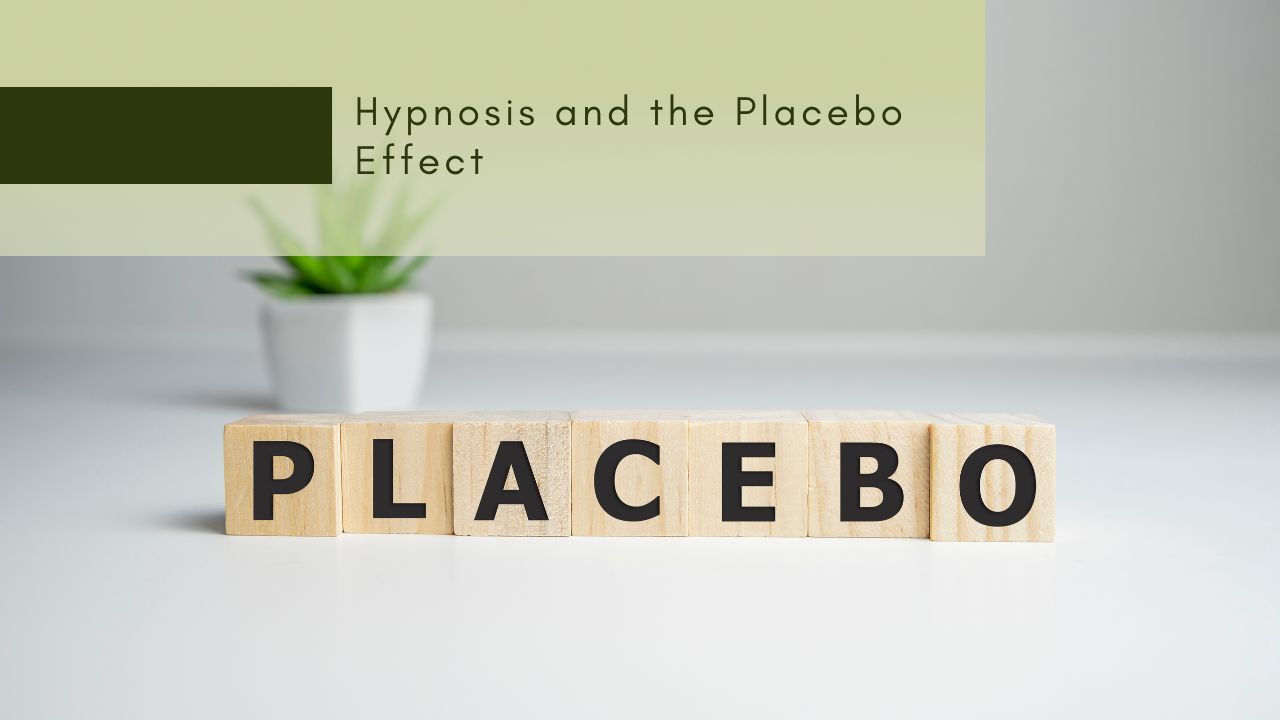In this article, Annemieke Van Dam, well-known hypnotherapist in Auckland will discuss hypnotherapy and the Microbiome, what is Microbiome and how can hypnotherapy affect it.
The Gut-Brain Connection: How Your Microbiome Talks to Your Mind (and Vice Versa!)
Tiny Tenants, Big Impact: Understanding the Power of Your Gut Bacteria
The power of gut bacteria, also known as the gut microbiota or gut microbiome, refers to the diverse community of microorganisms residing in the gastrointestinal tract. These microorganisms play a crucial role in various aspects of human health and are increasingly recognised for their profound impact on overall well-being. Below is an overview of the power of gut bacteria:
- Digestion and Nutrient Absorption: Gut bacteria aid in the digestion of dietary fibers, complex carbohydrates, and other indigestible compounds that the human body cannot break down on its own. They produce enzymes and metabolites that help break down food particles and facilitate nutrient absorption in the intestines, ensuring that essential vitamins, minerals, and nutrients are properly utilised by the body.
- Immune Function: The gut microbiota plays a vital role in modulating the immune system and defending against pathogens. Beneficial bacteria in the gut help train the immune system to distinguish between harmful pathogens and harmless antigens, thereby promoting immune tolerance and preventing inflammatory responses. They also produce antimicrobial substances and compete with pathogenic bacteria for nutrients and space, further enhancing immune defense mechanisms.
- Mood and Mental Health: Emerging research suggests that the gut-brain axis, the bidirectional communication network between the gut and the brain, plays a crucial role in regulating mood, emotions, and mental health. Gut bacteria produce neurotransmitters such as serotonin, dopamine, and gamma-aminobutyric acid (GABA), which influence mood and emotional well-being. Disruptions in the gut microbiota have been linked to mood disorders such as depression, anxiety, and stress.
- Metabolic Health: The composition of the gut microbiota has been associated with various metabolic processes, including energy metabolism, glucose regulation, and lipid metabolism. Imbalances in the gut microbiome, such as dysbiosis (an imbalance of gut bacteria), have been linked to metabolic disorders such as obesity, insulin resistance, and type 2 diabetes. Beneficial bacteria in the gut produce short-chain fatty acids (SCFAs) that regulate energy metabolism and inflammation, contributing to metabolic health.
- Inflammation and Chronic Disease: A balanced gut microbiota helps maintain gut barrier integrity and prevents the translocation of harmful bacteria and toxins into the bloodstream. Dysbiosis and intestinal permeability (leaky gut) can lead to chronic inflammation, which is implicated in the development of various chronic diseases, including inflammatory bowel disease (IBD), autoimmune disorders, cardiovascular disease, and certain cancers. Beneficial bacteria in the gut produce anti-inflammatory compounds that help regulate immune responses and mitigate inflammation.
- Modulating Gene Expression: Gut bacteria can influence gene expression in the host cells through various mechanisms, including epigenetic modifications and metabolite signaling. This dynamic interplay between the gut microbiota and host genetics can shape physiological processes, such as immune function, metabolism, and neurotransmitter synthesis, and contribute to individual health outcomes and disease susceptibility.
Overall, the power of gut bacteria extends far beyond digestion and encompasses a wide range of physiological functions, including immune regulation, mental health, metabolic homeostasis, and inflammation modulation. Maintaining a diverse and balanced gut microbiota through dietary interventions, probiotics, prebiotics, and lifestyle modifications is essential for optimizing health and well-being.
The Two-Way Street: How Stress and Emotions Affect Your Microbiome
Stress and emotions can significantly impact the composition and function of the gut microbiome, influencing its diversity, balance, and overall health. The paragraphs below outline how stress and emotions affect your microbiome:
- Gut-Brain Axis Communication: The gut-brain axis is a bidirectional communication network that connects the gut and the brain, allowing them to influence each other’s function and activity. Stress and emotions, such as anxiety, depression, and chronic stress, can disrupt the delicate balance of the gut-brain axis, leading to alterations in gut motility, immune function, and the composition of the gut microbiota.
- Altered Microbial Composition: Stress has been shown to influence the composition of the gut microbiome, leading to changes in the relative abundance of specific bacterial taxa. Chronic stress, in particular, has been associated with decreases in beneficial bacteria such as Lactobacillus and Bifidobacterium and increases in potentially harmful bacteria such as Firmicutes and Proteobacteria. These shifts in microbial composition can disrupt the balance of the gut microbiota and contribute to dysbiosis, inflammation, and gastrointestinal disorders.
- Immune Dysregulation: Stress-induced changes in the gut microbiome can impact immune function and inflammation regulation. Dysbiosis and alterations in gut barrier integrity may lead to increased intestinal permeability (leaky gut), allowing harmful bacteria and toxins to enter the bloodstream and trigger systemic immune responses. Chronic inflammation resulting from dysregulated immune function has been implicated in the pathogenesis of various diseases, including autoimmune disorders, inflammatory bowel disease (IBD), and metabolic syndrome.
- Neurotransmitter Production: The gut microbiota plays a crucial role in the production and metabolism of neurotransmitters, such as serotonin, dopamine, and gamma-aminobutyric acid (GABA), which regulate mood, emotions, and stress responses. Stress-induced alterations in the gut microbiome can disrupt neurotransmitter synthesis and signaling pathways, leading to mood disorders such as anxiety and depression. Conversely, dysbiosis-induced changes in neurotransmitter production can also influence stress resilience and emotional regulation.
- Microbiota-Brain Signaling Pathways: The gut microbiota communicates with the brain through various signaling pathways, including the vagus nerve, immune signaling molecules, and microbial metabolites. Stress-induced changes in the gut microbiome can alter the production and release of microbial metabolites, such as short-chain fatty acids (SCFAs), which have been shown to modulate brain function and behavior. Dysbiosis-induced alterations in microbiota-brain signaling pathways may contribute to stress-related psychiatric disorders and cognitive dysfunction.
Overall, stress and emotions can have profound effects on the gut microbiome, shaping its composition, function, and interactions with the host organism. Strategies to promote a healthy gut microbiome and mitigate the impact of stress on gut health may include stress management techniques, dietary interventions, probiotics, prebiotics, and lifestyle modifications aimed at supporting gut-brain axis balance and overall well-being.
Can a Grumpy Gut Lead to Bad Dreams? Exploring the Microbiome-Sleep Connection
The microbiome-sleep connection reveals a bidirectional relationship between the gut microbiome and sleep patterns, with each influencing the other’s function and activity. Below is an overview of the intricate relationship between the microbiome and sleep:
- Circadian Rhythms: The gut microbiome exhibits diurnal variations in composition and function, mirroring the host’s circadian rhythms. Disruptions in circadian rhythms, such as irregular sleep-wake cycles or shift work, can alter the gut microbiome’s microbial diversity and metabolic activity, potentially leading to dysbiosis and associated health consequences.
- Melatonin Production: The gut microbiota plays a role in the synthesis and metabolism of melatonin, a hormone involved in regulating sleep-wake cycles. Certain bacterial species in the gut produce metabolites that influence melatonin production, while melatonin itself has been shown to modulate the growth and activity of gut bacteria. Disruptions in melatonin signaling pathways may contribute to sleep disturbances and alterations in gut microbiome composition.
- Short-Chain Fatty Acid Production: The gut microbiota produces short-chain fatty acids (SCFAs), such as acetate, propionate, and butyrate, through the fermentation of dietary fibers. SCFAs play a role in regulating host metabolism, immune function, and gut barrier integrity, all of which are implicated in sleep regulation. Dysbiosis-induced changes in SCFA production may influence sleep quality and duration.
- Immune Function: Sleep is essential for maintaining a healthy immune system, and disruptions in sleep patterns can impair immune function and increase susceptibility to infections and inflammatory conditions. The gut microbiome plays a crucial role in immune regulation, with dysbiosis linked to alterations in immune responses and increased inflammation. Chronic inflammation resulting from dysregulated immune function may contribute to sleep disturbances and disorders.
- Neurotransmitter Production: The gut microbiota produces neurotransmitters and neuromodulators that influence brain function and behavior, including those involved in sleep regulation. Bacterial species in the gut produce metabolites that can affect the synthesis and metabolism of neurotransmitters such as serotonin, dopamine, and gamma-aminobutyric acid (GABA), all of which play a role in sleep-wake cycles and mood regulation.
- Gut-Brain Axis Communication: The gut microbiome communicates with the brain through various signaling pathways, collectively known as the gut-brain axis. Bidirectional communication between the gut and the brain influences sleep patterns, mood, and cognitive function. Dysbiosis-induced alterations in gut-brain axis signaling pathways may contribute to sleep disturbances and psychiatric disorders such as insomnia, depression, and anxiety.
Overall, the microbiome-sleep connection underscores the importance of maintaining a healthy gut microbiome for optimal sleep health and vice versa. Strategies to support gut health, such as consuming a diverse and fiber-rich diet, managing stress, and promoting regular sleep patterns, may help improve sleep quality and overall well-being by fostering a harmonious relationship between the gut microbiome and sleep.
Hypnotherapy: Can It Really Influence Your Gut Feeling?
Calming the Gut-Brain Chatter: Hypnotherapy as a Stress-Reduction Tool
Hypnotherapy can help calm the gut-brain chatter and reduce stress in the following ways:
- Inducing Relaxation: Hypnotherapy techniques, such as guided imagery, progressive muscle relaxation, and deep breathing exercises, help induce a state of deep relaxation. By guiding individuals into a trance-like state, hypnotherapy activates the parasympathetic nervous system, which promotes relaxation and counters the physiological effects of stress on the body.
- Modulating Stress Responses: Hypnotherapy can modulate the body’s stress responses by influencing neuroendocrine pathways and neurotransmitter activity. During hypnosis, individuals may receive suggestions and imagery that promote feelings of calmness, safety, and control, helping to reduce anxiety and cortisol levels associated with stress.
- Regulating Gut Function: Stress has been shown to impact gut function and exacerbate gastrointestinal symptoms such as bloating, abdominal pain, and diarrhea. Hypnotherapy can help regulate gut function by reducing stress-induced gut motility and hypersensitivity. By addressing the psychological aspects of gastrointestinal disorders, hypnotherapy can alleviate symptoms and improve overall gut health.
- Enhancing Mind-Body Connection: Hypnotherapy facilitates communication between the gut and the brain, promoting a harmonious relationship between the two. By fostering a stronger mind-body connection, hypnotherapy helps individuals become more attuned to their gut sensations and responses, empowering them to manage stress and gut-related symptoms more effectively.
- Addressing Emotional Triggers with hypnosis: Hypnotherapy can help individuals identify and address emotional triggers that contribute to stress and gut-brain dysfunction. Through guided imagery, visualization, and suggestion, hypnotherapy enables individuals to explore and reframe negative beliefs and emotions associated with stress, promoting emotional resilience and well-being.
- Promoting Positive Coping Strategies: Hypnotherapy equips individuals with tools and techniques to cope with stress more effectively. By fostering relaxation, mindfulness, and self-awareness, hypnotherapy empowers individuals to develop healthier coping strategies for managing stressors in their daily lives, reducing the impact of stress on gut-brain health.
- Improving Sleep Quality with hypnotherapy: Sleep plays a crucial role in gut-brain health, with disruptions in sleep patterns exacerbating stress and gastrointestinal symptoms. Hypnotherapy can promote better sleep quality by addressing underlying stressors, promoting relaxation, and enhancing sleep hygiene practices, leading to improved gut-brain health and overall well-being.
Overall, hypnotherapy serves as a valuable stress-reduction tool for calming the gut-brain chatter and promoting gut-brain health. By inducing relaxation, modulating stress responses, regulating gut function, and enhancing the mind-body connection, hypnotherapy empowers individuals to manage stress more effectively and improve their overall quality of life.
Promoting Positive Microbiome-Mind Interactions: Cultivating Resilience through Hypnosis
Hypnosis can foster a harmonious relationship between the gut microbiome and the mind, promoting resilience and well-being. Listed below are how hypnosis can facilitate positive interactions between the microbiome and the mind:
- Hypnotherapy for Stress Reduction
- Enhanced Gut-Brain Communication
- Regulation of Gut Function
- Promotion of Emotional Resilience
- Optimization of Mind-Body Health
- Encouragement of Healthy Lifestyle Behaviuors
Overall, hypnosis serves as a powerful tool for promoting positive interactions between the microbiome and the mind, fostering resilience, and enhancing overall well-being. By reducing stress, enhancing gut-brain communication, regulating gut function, promoting emotional resilience, and encouraging healthy lifestyle behaviors, hypnosis empowers individuals to cultivate a healthier relationship with their gut microbiome and support their resilience to stress and adversity.
Could Hypnotherapy Be the Future of Probiotics? Exploring the Potential for Personalized Gut Care
The concept of using hypnotherapy as a complementary approach to probiotics for personalsed gut health management is becoming a known and more popular approach to supporting gut care. Hypnotherapy has the potential to modulate the gut-brain axis, the bidirectional communication network between the gut and the brain. Hypnotherapy achieves this by supporting relaxation, reducing stress, and enhancing mind-body awareness. It can also positively influence gut function and microbial balance, complementing the effects of probiotics on gut health.
Hypnotherapy may also enhance the efficacy of probiotics by optimising gut conditions for microbial colonisation and activity. By reducing stress-induced inflammation, improving gut motility, and fostering a more favorable gut environment, hypnotherapy can create a more hospitable environment for probiotic bacteria to thrive and exert their beneficial effects on gut health.
Hypnotherapy empowers individuals to take an active role in managing their gut health and well-being. By teaching relaxation techniques, stress management strategies, and self-hypnosis skills, hypnotherapy equips individuals with tools to manage stress-related gastrointestinal symptoms and optimise the effects of probiotics, promoting a sense of control and empowerment over their gut health.
By addressing the gut-brain connection, enhancing probiotic efficacy, addressing psychological factors, promoting personalised care, improving treatment adherence, and empowering self-management, hypnotherapy has the potential to revolutionise personalised gut care and contribute to improved outcomes for individuals with gut-related conditions.
From Irritable Bowel to Inner Harmony: Real-Life Stories of Hypnotherapy and the Microbiome
Healing from Within: How Hypnotherapy for IBS Soothed a Struggling Digestive System
aa 35-year-old woman, had been struggling with symptoms of irritable bowel syndrome (IBS) for several years. She experienced frequent abdominal pain, bloating, and irregular bowel movements, which significantly impacted her quality of life and overall well-being. Despite trying various medications and dietary modifications, she found little relief from her symptoms and felt frustrated and discouraged.
Hypnotherapy Intervention:
Upon consulting with a qualified hypnotherapist who specialised in gut-directed hypnotherapy, The individual decided to explore hypnotherapy as a complementary approach to managing her IBS symptoms. The hypnotherapist conducted an initial assessment to understand the woman’s medical history, symptom profile, and psychological factors contributing to her condition.
During hypnotherapy sessions, the woman was guided into a state of deep relaxation and focused attention, allowing her subconscious mind to become more receptive to positive suggestions and imagery related to gut health. The hypnotherapist utilised gut-directed hypnotherapy techniques tailored to address her specific symptoms and concerns, such as reducing visceral hypersensitivity, improving gut motility, and alleviating stress-related triggers.
Results:
Over the course of several hypnotherapy sessions, the woman began to notice significant improvements in her IBS symptoms and overall well-being. She experienced reduced frequency and severity of abdominal pain and bloating, more regular bowel movements, and a greater sense of control over her digestive system. Additionally, she reported feeling less anxious and stressed about her symptoms, as hypnotherapy helped her develop coping strategies and a more positive mindset toward her gut health.
Long-Term Benefits:
As the woman continued with hypnotherapy sessions and practiced self-hypnosis techniques at home, she sustained the improvements in her digestive symptoms and quality of life. Hypnotherapy empowered her to better manage stress-related triggers, optimise her dietary choices, and maintain a healthier lifestyle that supported her gut health. Over time, her reliance on medications decreased, and she experienced a newfound sense of confidence and empowerment in managing her IBS symptoms.
Conclusion:
This case study illustrates how hypnotherapy can effectively soothe a struggling digestive system, such as in the case of IBS, by addressing the gut-brain connection and reducing stress-related triggers. Through relaxation, positive suggestions, and targeted interventions, hypnotherapy empowers individuals to take control of their gut health and experience lasting relief from digestive symptoms, leading to improved overall well-being and quality of life.
Beyond Medication: Finding Relief from Inflammatory Bowel Disease with Hypnosis
Inflammatory bowel disease (IBD), which includes conditions such as Crohn’s disease and ulcerative colitis, is characterised by chronic inflammation of the digestive tract, leading to symptoms such as abdominal pain, diarrhea, fatigue, and reduced quality of life. While medications are commonly used to manage IBD symptoms, some individuals may seek alternative or complementary approaches to alleviate their symptoms and improve their overall well-being.
Hypnotherapy Intervention:
Individuals with IBD may turn to hypnotherapy as a non-invasive and drug-free intervention to address their symptoms and enhance their quality of life. Hypnotherapy for IBD typically involves a series of sessions with a trained hypnotherapist who specialises in gut-directed hypnotherapy. During these sessions, individuals are guided into a state of deep relaxation and focused attention, allowing them to access their subconscious mind and make positive changes related to their gut health.
Key Components of Hypnotherapy for IBD:
- Reducing Inflammation: Hypnotherapy can help individuals with IBD manage inflammation by modulating immune responses, reducing stress-related inflammation, and promoting relaxation. Through visualisation, suggestion, and relaxation techniques, hypnotherapy aims to calm the inflammatory response in the digestive tract and alleviate symptoms of inflammation such as pain and discomfort.
- Alleviating Symptoms: Hypnotherapy addresses specific symptoms associated with IBD, such as abdominal pain, bloating, diarrhea, and urgency. By targeting the underlying psychological factors contributing to these symptoms, such as stress, anxiety, and visceral hypersensitivity, hypnotherapy can help individuals experience relief and improve their overall quality of life.
- Managing Stress: Stress is known to exacerbate symptoms of IBD and trigger disease flares. Hypnotherapy provides individuals with tools and techniques to manage stress more effectively, reducing the impact of stress on their digestive health. Through relaxation exercises, guided imagery, and cognitive-behavioral strategies, hypnotherapy empowers individuals to cope with stressors and maintain emotional balance.
- Enhancing Gut-Brain Communication: Hypnotherapy strengthens the connection between the gut and the brain, known as the gut-brain axis, facilitating bidirectional communication between the two. By promoting a harmonious relationship between the gut and the brain, hypnotherapy can improve gut function, reduce inflammation, and alleviate symptoms of IBD.
Benefits of Hypnotherapy for IBD:
Hypnotherapy can provide significant relief from symptoms of IBD, including abdominal pain, bloating, diarrhea, and urgency, leading to improved quality of life and well-being. By modulating immune responses and stress-related inflammation, hypnotherapy may help reduce inflammation in the digestive tract and promote healing in individuals with IBD.
Hypnotherapy also empowers individuals to take an active role in managing their IBD symptoms, reducing reliance on medications, and enhancing their overall quality of life.
Overall hypnotherapy offers a non-invasive and drug-free approach to managing IBD symptoms, making it a safe and accessible option for individuals seeking alternative or complementary treatments.
Conclusion:
Hypnotherapy has the potential to offer relief for individuals with inflammatory bowel disease by addressing underlying psychological factors, reducing inflammation, and alleviating symptoms associated with the condition. As a non-invasive and drug-free intervention, hypnotherapy complements traditional medical treatments for IBD and empowers individuals to take control of their gut health and well-being. Further research and clinical studies are warranted to explore the efficacy and long-term benefits of hypnotherapy for IBD management.
Building a Balanced Microbiome: A Holistic Approach to Gut Health with Hypnosis
A holistic approach to gut health with hypnosis emphasises the synergistic relationship between hypnotherapy and gut health, highlighting the potential of hypnosis as a holistic approach to promoting microbial balance and overall well-being. By addressing stress, enhancing gut-brain communication, and optimising lifestyle factors, hypnotherapy empowers individuals to cultivate a healthier gut environment conducive to microbial diversity, resilience, and vitality.
Mind Your Microbes: Tools and Tips for Harnessing the Gut-Brain Connection through Hypnosis
Hypnotic Gut-Directed Relaxation Techniques: Calming Your Inner Garden
This delves into the use of hypnosis as a tool for promoting relaxation and balance within the gut microbiome. Below is an exploration of how hypnotic gut-directed relaxation techniques can help soothe the inner garden of the gut:
Introduction:
The gut microbiome, often referred to as the “inner garden,” plays a crucial role in digestive health, immune function, and overall well-being. Stress and lifestyle factors can disrupt the delicate balance of the gut microbiome, leading to dysbiosis and associated health issues. Hypnotic gut-directed relaxation techniques offer a holistic approach to promoting microbial balance and optimizing gut health.
Key Components of Hypnotic Gut-Directed Relaxation Techniques:
- Inducing Deep Relaxation
- Visualising Healing Imagery
- Engaging the Mind-Body Connection
- Addressing Stress and Emotional Trigger
- Enhancing Gut-Brain Communication
Benefits of Hypnotic Gut-Directed Relaxation Techniques:
- Promotion of Gut Health: Hypnotic gut-directed relaxation techniques promote microbial balance and optimise gut health by reducing stress, enhancing gut-brain communication, and fostering a harmonious environment for beneficial bacteria to thrive.
- Alleviation of Digestive Discomfort: Individuals who practice hypnotic gut-directed relaxation techniques may experience relief from digestive discomfort such as bloating, abdominal pain, and irregular bowel movements. By promoting relaxation and reducing stress-related triggers, hypnosis helps soothe the inner garden of the gut and alleviate gastrointestinal symptoms.
- Empowerment and Self-Healing: Hypnotic gut-directed relaxation techniques empower individuals to take an active role in managing their gut health and well-being. By engaging the mind-body connection and directing positive intentions toward healing and restoration, hypnosis supports self-healing and resilience within the gut microbiome.
Hypnotic gut-directed relaxation techniques for calming your inner garden highlights the potential of hypnosis as a tool for promoting relaxation, balance, and healing within the gut microbiome. By inducing deep relaxation, visualising healing imagery, engaging the mind-body connection, addressing stress and emotional triggers, and enhancing gut-brain communication, hypnotic gut-directed relaxation techniques empower individuals to cultivate a healthier inner environment for their microbiome and optimise their overall well-being.
Prebiotic Power: Hypnotherapy for Enhancing the Growth of Friendly Bacteria
Prebiotics are non-digestible fibers that serve as food for beneficial bacteria in the gut, promoting their growth and activity. While prebiotics are commonly consumed through dietary sources such as fruits, vegetables, and whole grains, hypnotherapy offers a unique approach to enhancing their effectiveness by harnessing the power of the mind to optimise gut health in the following ways:
- Enhancing Mind-Body Connection: Hypnotherapy strengthens the connection between the mind and the body, allowing individuals to influence physiological processes such as digestion and gut health through the power of their thoughts and intentions. By guiding individuals into a relaxed trance state, hypnotherapy facilitates greater awareness and control over bodily functions, including the growth of friendly bacteria in the gut.
- Directing Positive Intentions: During hypnotherapy sessions, individuals are guided to direct positive intentions toward their gut health, including the promotion of beneficial bacteria through the consumption of prebiotic-rich foods. By focusing attention on the importance of prebiotics for gut health and visualising their beneficial effects on microbial balance, hypnotherapy empowers individuals to make healthier dietary choices and optimise their gut microbiome.
- Addressing Psychological Factors: Psychological factors such as stress, anxiety, and negative beliefs can impact gut health and the effectiveness of prebiotics. Hypnotherapy helps individuals identify and address these underlying psychological factors, reducing stress and promoting a more positive mindset toward gut health and dietary choices. By reducing stress-related barriers to prebiotic effectiveness, hypnotherapy enhances the growth of friendly bacteria in the gut.
- Promoting Compliance and Adherence: Hypnotherapy can improve compliance and adherence to prebiotic-rich diets by addressing psychological barriers and reinforcing positive behaviors. Through suggestion, visualiszation, and reinforcement, hypnotherapy encourages individuals to incorporate prebiotic-rich foods into their daily diet, leading to sustained improvements in gut health and microbial balance.
The above factors highlight the potential of hypnotherapy as a complementary approach to promoting gut health through the use of prebiotics. By enhancing the mind-body connection, directing positive intentions, addressing psychological factors, and promoting compliance and adherence to prebiotic-rich diets, hypnotherapy empowers individuals to harness the power of prebiotics for optimal gut health and overall well-being.
Building a Microbiome-Supporting Lifestyle: Tips for a Healthy Gut-Brain Partnership
Maintaining a healthy gut-brain partnership is crucial for overall well-being, as the communication between these two systems plays a significant role in various aspects of health, including digestion, mood regulation, immune function, and cognitive function. Below are some tips on how to support a healthy gut-brain partnership:
- Eat a Balanced Diet: Consuming a diverse range of nutrient-rich foods, including fruits, vegetables, whole grains, lean proteins, and healthy fats, supports a healthy gut microbiome.
- Manage Stress: Chronic stress can disrupt the gut-brain axis and impact digestive health. Incorporate stress-reduction techniques into your daily routine, such as meditation, deep breathing exercises, yoga, mindfulness practices, and relaxation techniques. Regular physical activity and hobbies can also help reduce stress and promote overall well-being.
- Get Adequate Sleep: Prioritise good sleep hygiene by maintaining a consistent sleep schedule, creating a relaxing bedtime routine, and ensuring a comfortable sleep environment. Aim for 7-9 hours of quality sleep each night, as inadequate sleep can affect gut health and cognitive function.
- Stay Hydrated: Drink plenty of water throughout the day to support proper digestion, nutrient absorption, and overall gut health. Limit intake of sugary beverages and excessive caffeine, as they can disrupt gut microbiota balance.
- Limit Processed Foods and Sugars: Highly processed foods, sugary snacks, and artificial sweeteners can negatively impact gut health and contribute to inflammation. Opt for whole, minimally processed foods whenever possible to support a healthy gut microbiome.
- Practice Mindful Eating: Pay attention to your body’s hunger and fullness cues, and eat mindfully without distractions. Chew your food thoroughly and savor each bite, which can aid digestion and nutrient absorption.
- Maintain a Healthy Weight: Obesity and excess weight are associated with imbalances in gut bacteria and increased inflammation. Aim to achieve and maintain a healthy weight through a balanced diet and regular physical activity.
- Limit Alcohol and Tobacco Use: Excessive alcohol consumption and smoking can disrupt gut microbiota balance and contribute to gastrointestinal issues. Limit alcohol intake and avoid smoking to support a healthy gut-brain partnership.
- Seek Social Support: Cultivate strong social connections and maintain supportive relationships with friends, family, and community members. Social support can help buffer the effects of stress and promote mental well-being.
- Consider Gut-Healthy Supplements: In consultation with a healthcare provider, consider incorporating gut-healthy supplements such as probiotics, prebiotics, and digestive enzymes to support gut health and microbial balance.
By incorporating these tips into your lifestyle, you can support a healthy gut-brain partnership and promote overall well-being. Remember that individual responses may vary, so it’s essential to listen to your body and make adjustments that work best for you. If you have specific concerns about gut health or digestive issues, consult with a healthcare professional for personalized guidance and recommendations.




